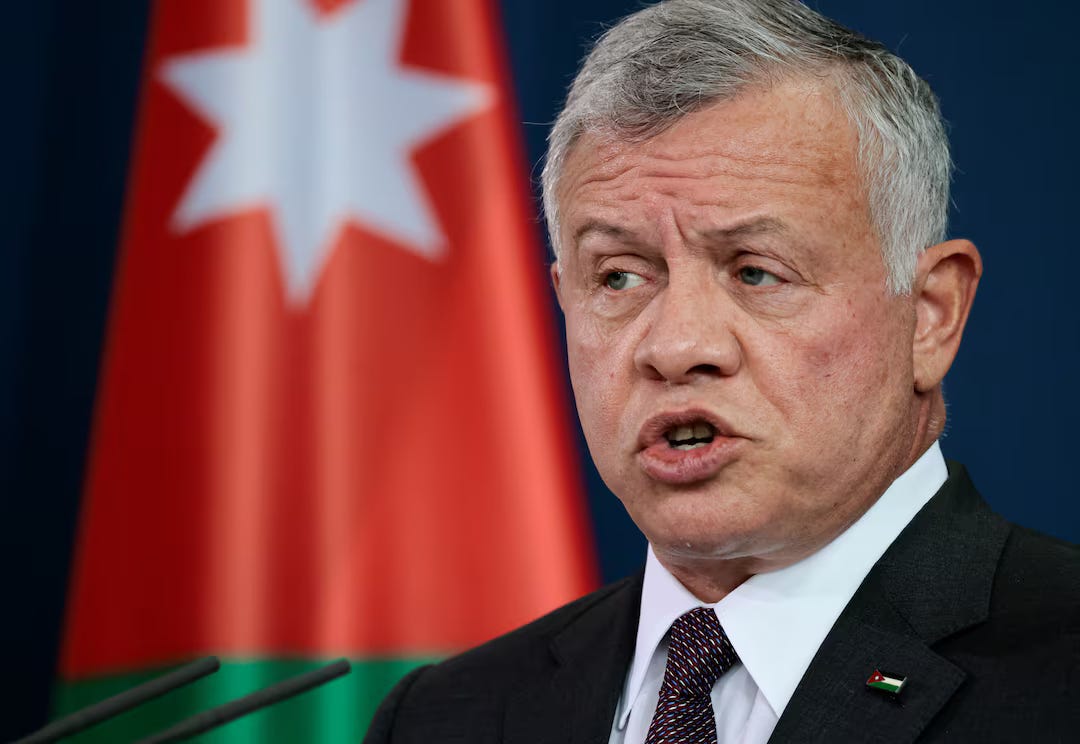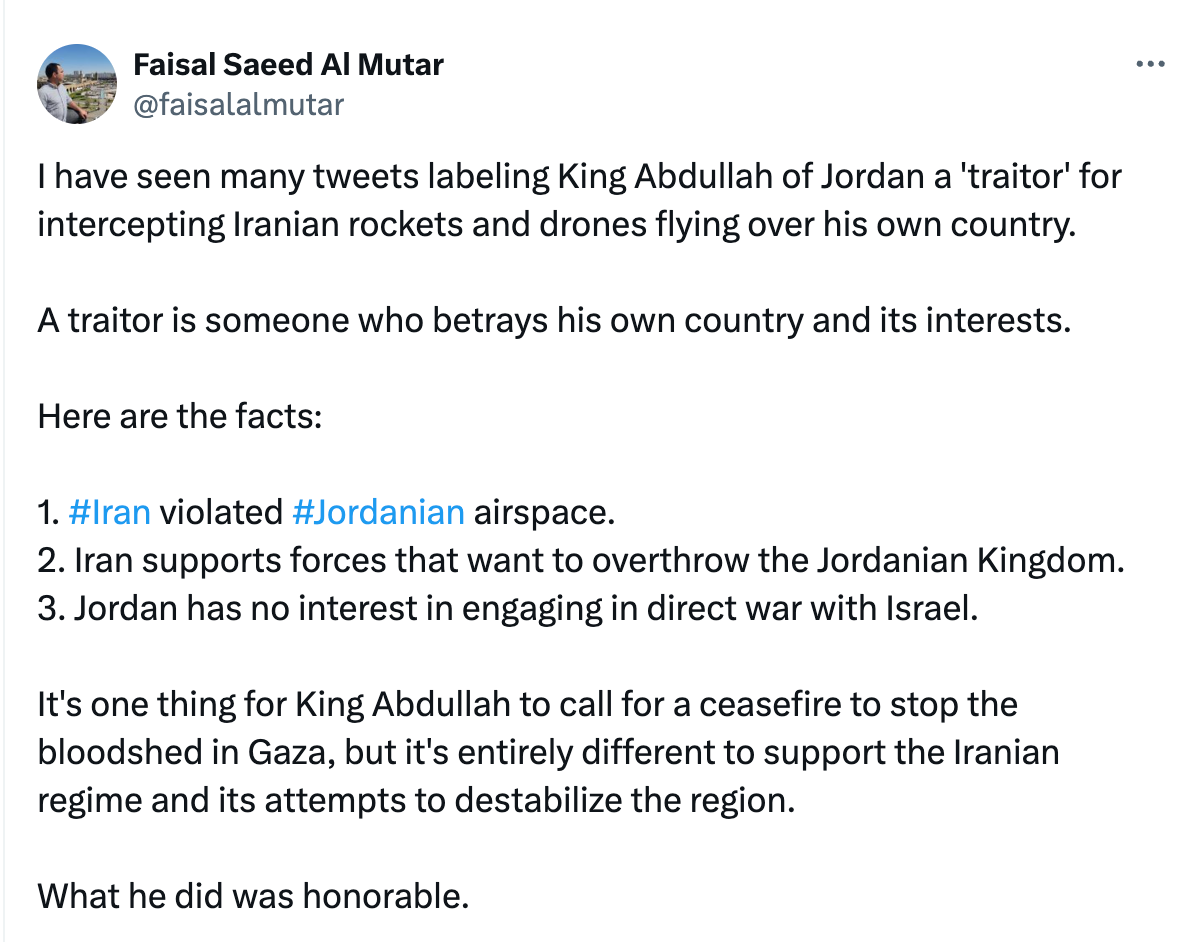Defending Jordan's Sovereignty is Not a Betrayal, but a Necessity
This isn't about choosing between Israel and Iran; it's about preventing Jordan from becoming a casualty of regional power plays, much like Lebanon, Syria, Yemen, and my homeland, Iraq.
Recently, I found myself at the center of controversy for defending King Abdullah II of Jordan's decisive action to intercept Iranian drones and rockets destined for Israel. Critics were quick to label this as pro-Israel, missing the larger and more pressing narrative: this is about protecting Jordan's sovereignty and its very survival.
Let's set the record straight. This isn't about choosing between Israel and Iran; it's about preventing Jordan from becoming a casualty of regional power plays, much like Lebanon, Syria, Yemen, and my homeland, Iraq. These nations have suffered immensely under the influence of unchecked external powers, particularly Iran. The cost? Stability and the safety of their people.
Take Iraq, for instance. In a recent CNN interview, the Iraqi Prime Minister's response to a journalist's kidnapping—a likely act by militias aligned with Iran—was merely to mention an ongoing "investigation." This incident illustrates how militias have hijacked the sovereignty of Iraq for external agendas.
Jordan, meanwhile, serves as a sanctuary to over a million Syrian refugees and numerous displaced Palestinians, many of whom have gained Jordanian citizenship. If Jordan were to become another proxy battlefield, not only would these refugees have nowhere safe to go, but the very fabric of Jordanian society could unravel. Claims that a few Iranian rockets could "wipe out Israel" are not only delusional but dangerously ignore the broader consequence: the potential devastation of Jordan itself.
Critics also charge that Jordan's actions betray the Muslim world, the Ummah. However, equating the diverse political interests of Muslim-majority countries like Indonesia, Pakistan, and Iran is simplistic and inaccurate. The notion that all Muslim nations share uniform political objectives is as flawed as suggesting that Christian-majority countries like Russia and Ukraine, or Venezuela and Poland, have aligned interests.

Jordan's alliances, particularly with the United States and through its peace treaty with Israel, are strategic and based on mutual benefits rather than religious solidarity. The kingdom has chosen peace and pragmatism over conflict and ideology—a stance that has preserved its stability in a tumultuous region.
Jordanians, like all global citizens, certainly have a role in supporting their Palestinian neighbors, and more can be done. But to demand Jordan risk its own existence for a broader conflict between Iran and Israel is both unreasonable and irresponsible. Iran's decision to target Israel was not out of solidarity with Gaza but was a response to an alleged attack on their embassy, further complicating the narrative.
Jordan’s interception of Iranian weaponry was not a betrayal but a necessary act of self-preservation. It is a reminder that Jordan must continue to safeguard its sovereignty against external pressures to maintain its role as a bastion of stability in the Middle East. The international community must recognize and support Jordan's right to defend itself, as the consequences of failing to do so could be disastrous not only for Jordan—but for the entire region.




I’m glad to read your perspective on this. Thank you!
God Bless the Hashemite Kingdom of Jordan